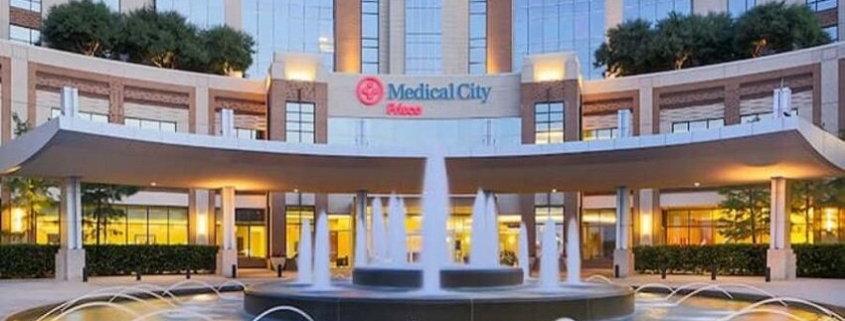As 2023 Recession Predictions Mount, Healthcare Real Estate Rises On CRE’s Most-Wanted List
With whispers about a 2023 recession growing louder in the CRE industry, many players are looking for safe asset classes to invest in and more eyes are making their way to healthcare real estate.
“There’s this growing chorus of economists suggesting that a recession could be a reality in 2023 — some say shallow, some say not so shallow,” Steve Bolen, U.S. head of Healthcare Real Estate at LaSalle Investment Management, told the audience at Bisnow’s New York Healthcare Summit. “That is a time when I think healthcare real estate will really shine.”
The past six months have sent shock waves through the CRE sector, with stubborn inflation, ever-rising construction costs and seven federal interest rate hikes sparing no sector from economic pain. And as investors examine where to allocate their dollars in 2023, many are doubling down in their search for asset classes a little more removed from economic cycles, a dynamic that CRE players at the event, held at 156 William St., said will favor healthcare real estate.
“It was already on LaSalle’s 2022 list of preferred asset classes to invest in,” Bolen said. “And alongside industrial, multifamily and single-family rentals, remains on 2023’s list for LaSalle’s clients. It has historically been a recession-resistant asset class. We were not surprised at all to see healthcare real estate land again on the favored list for 2023.”
In particular, venture capital and private equity are looking to healthcare real estate as they seek shelter from the instability shaking the broader economy.
“That dynamic is challenging traditional health systems looking to raise capital for their real estate,” Mount Sinai Ventures Managing Director Brent Stackhouse told Bisnow’s audience. “In terms of what I’m seeing here in New York, there’s a big influx of private equity capital coming in to build new healthcare businesses. That is eroding away our base of business’s health systems, and we need to compete with that. Our strategy is to move towards joint ventures with some of those entities.”
Major players in New York City are looking to capitalize on healthcare consumer demand for convenience, targeting real estate investments in areas that their clientele moved to during the pandemic, Stackhouse said.
“One of the things that was really eye-opening for our health system was the tremendous success of CityMD. They put up urgent care centers on seemingly every corner, and in doing so created a new dynamic,” Stackhouse said. “People will get care — and at times, very intimate and sensitive care — with somebody they’ve never met before because it’s convenient. And that convenience outweighed those longstanding relationships between the patient and provider.”
The pandemic’s disruption of the healthcare industry has opened up new opportunities, said Joy Altimore, chief revenue officer at EHE Health. The early pandemic brought a revolution in virtual care, creating new opportunity and space for other types of innovative healthcare businesses.
“What we’re seeing right now, especially in 2022, 2023 — and particularly in the femtech space — we see a huge lead in freezing your eggs or family planning or IVF. These are high-tech experiences that have to happen in a location and cannot happen virtually,” Altimore said. “You have a company like Kindbody, that last year only had eight locations. By the end of next year, it will have almost 100 locations. Where is that going to go?”
Convenience of healthcare is a key theme permeating different aspects of the industry: Large NYC employers, thinking about benefit packages and employee retention, are also looking at ways to build on-site care centers, Altimore said.
“Employers need convenient options for their employees,” Altimore said, adding that hybrid and remote work add to the demand for diversified location selection for employer-based healthcare sites. “Employer populations are not monolithic. You have working moms, working families, you have younger generations coming in, they’re looking for different healthcare options.”
A growing aging population also presents a huge opportunity for the healthcare sector to examine its real estate decisions and adds to demand for convenience, Bolen said.
“Today’s senior citizens are quite a bit different from the senior citizens of times gone by. They are not satisfied to sit home and watch TV — it’s a very active senior citizen population,” Bolen said. “They want to stay healthy. If something hurts, they’re in their local physician’s office getting it fixed so they can go back to their lives of vitality and activity.”
Despite a seeming abundance of activity in 2022 and fresh opportunities for 2023, the healthcare real estate sector will face the same headwinds as any other real estate asset class, Rethink Healthcare Real Estate President Jonathan Winer said.
“A lot of people are focused on ambulatory real estate for next year. But the headwind against that, of course, is just pure capital allocation,” Winter said, citing dramatic changes to the spread between interest rates and cap rates leading to a 600-basis-point contraction over the past 12 months.
However, Winer stressed, fundamentals for healthcare real estate remain healthy.
“If you look at the last five years, the fundamentals for occupancy and rent growth have never been better,” Winter said. “This is a place investors want to be in times of economic stress, whenever that economic stress is.”
Source: Bisnow




